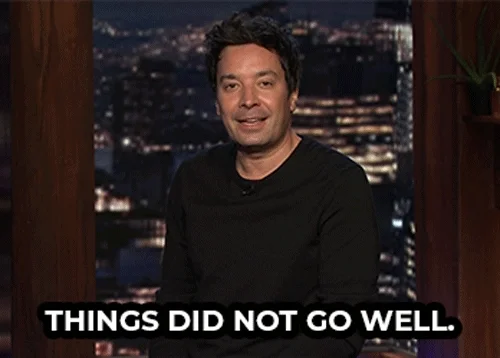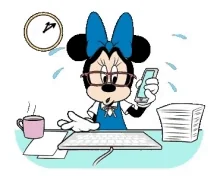
You’ve had an "Aha!" moment — an idea that must be seen by the world!
Maybe it’s a film, a board game, a gadget for cyclists, or something else you’ve thought of after being invested in a particular field for years. All you need is some money to research, develop, and producethe product. You decide you're going to crowdfund your idea.
Crowdfunding sounds like a great idea, and it can be. However, you should be aware of the pros and cons of crowdfunding before you dive in head first.
What is Crowdfunding?
Crowdfunding is a way to raise money for your project or business idea, typically through donations or exchanging money for rewards. This is usually done through a website like Kickstarter, GoFundMe, IndieGoGo, or Seed & Spark.
Instead of seeking money from the bank or an investor, you accumulate funds through small contributions from several people. These people are known as "backers".
 Photo by Ibrahim Boran on Unsplash
Photo by Ibrahim Boran on UnsplashOn a crowdfunding website, you promote your project and list a goal — which is the amount of money you're trying to raise to make your project a reality. Promotion and marketing are reliant on you sharing your page with potential backers.
Pros of Crowdfunding
You can tap into an existing network.
If you've already spent time fostering relationships in a community, then you may be able to leverage that into donations. You can have more success marketing a product to people you share something in common with, as long as you've established yourself as a reliable person producing something of value.

Crowdfunding may open the door to further funding.
If you show that enough backers are interested in your project, you may get venture capital funding from an established investor, as your project is a safer bet. It may open the door to relationships with investors that may prove fruitful for future projects.

You can bypass investors who don't understand your project.
In the past, a bank or investor may not have understood or even be aware of the type of product you were trying to create and would be reluctant to offer you a loan. With crowdfunding, you can find an audience for all sorts of ideas, and you can raise money quickly and avoid the debt that comes from a bank loan.

Crowdfunding is a form of market research.
In trying to get funding for your project, you are seeing how the market reacts to it, which provides valuable data. This could help you make refinements to your idea.

Cons of Crowdfunding
There are no guarantees.
There are no guarantees your project will be funded. If it fails, it will often be public too. As a result, crowdfunding is not for the thin-skinned.

There are tax complexities to deal with.
Depending on how much money you receive during your campaign and what the backers expect in return from their donation, you may be required to file additional tax forms.
For example, if donations are $600 or above, the IRS expects you to fill in a 1099-K form in the US. If a reward is exchanged for a contribution, as opposed to being gifted, you may be liable to pay more tax.
 Photo by Towfiqu barbhuiya on Unsplash
Photo by Towfiqu barbhuiya on UnsplashIt takes a time commitment.
Unless you're a Taylor Swift-level superstar whose supporters will lap up anything you drop within seconds, the process of crowdfunding a project is rarely easy.
Most people who have run successful crowdfunding campaigns will tell you it was a job in itself that required marketing smarts, and constant communication with backers to keep them feeling part of the process, not to mention shipping out rewards.
 4. It's tough to do without a following.
4. It's tough to do without a following.
Often crowdfunding campaigns are successful because the people who launched them already had a significant online following or were well known in a community.
If you're just starting, you'll face an uphill battle. You need to think about why somebody would invest their hard-earned money into somebody unknown or unproven.
You'll need to follow platform requirements.
Different platforms have different rules regarding how much of the money raised you can keep if you don’t meet your campaign goals.
For example, Kickstarter refunds backers if the campaign goal isn't met, whereas on IndieGoGo, there is the option for the project developers to collect whatever was contributed, regardless of whether the goal was met or not.
Quiz
Review these 3 descriptions of people with ideas for a crowdfunding project.

Jayce is a first-year film student. He's taken a couple of beginner courses in film but he wants to get straight into it — he wants to make a feature film.
He doesn't know any professionals in the film industry, but he wants to crowdfund his slasher film idea with a budget of $100,000. He'll work on his crowdfunding campaign while attending classes.

Ruth has been a yoga instructor for years. She has an idea for a yoga-specific piece of clothing that will address an issue that practitioners have faced for years. She knows this because she attends yoga conferences and has built a large following on her Instagram.
Ruth is launching a crowdfunding campaign to produce the item with a team of colleagues.

Andrew is a board game enthusiast. He is very shy and sensitive. He likes to work jobs where he does not have to be customer-facing or observed.
Jayce has what he thinks is a great idea for a new board game that he'd like to see developed but he doesn't know if he's mentally in the right place to bear the consequences of his idea being turned down.
Quiz
Who is the best candidate for launching a crowdfunding campaign?
Take Action
Your feedback matters to us.
This Byte helped me better understand the topic.

